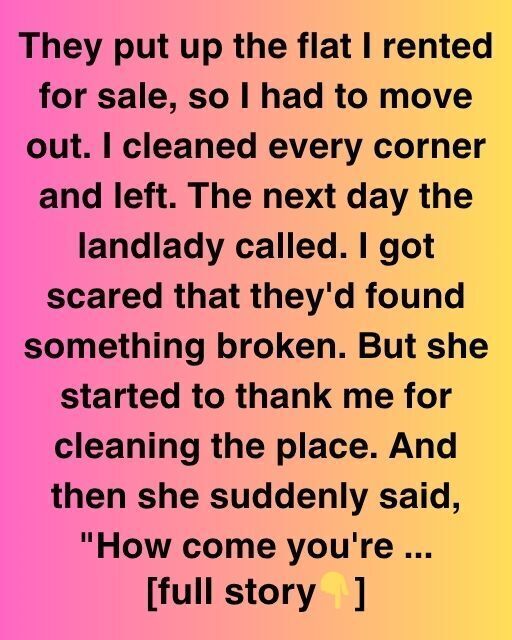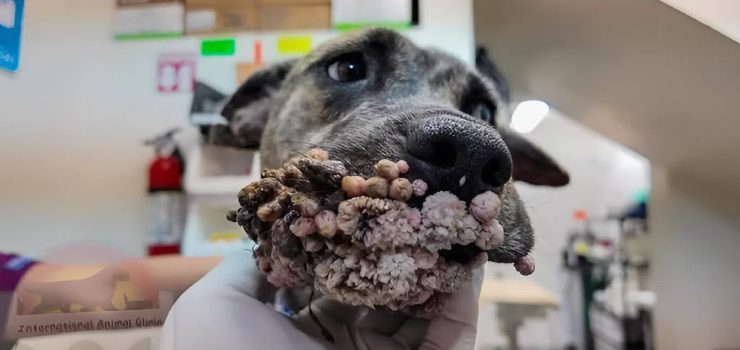When the flat I had been renting was put up for sale, I had no choice but to move out. I cleaned every inch of the place before handing over the keys, hoping I left things in good shape. The next day, I got a call from the landlady. My stomach dropped, expecting bad news, maybe something I missed or damaged. But instead, she simply thanked me for how clean I’d left the place.

Then she paused and asked, “How come you’re not bitter like the others?” Caught off guard, I chuckled and said, “Maybe I’ve just had good landlords.” She laughed gently and reminded me of the boiler breaking in the middle of winter and the leak in the ceiling. “You didn’t complain once,” she said. Truthfully, I had been frustrated, but I never saw a reason to take it out on her. “It wasn’t your fault the ceiling leaked during a storm,” I replied. She told me I was rare, and her gratitude was genuine. After hanging up, I sat on the bare mattress in my new, smaller, and more expensive flat. Life was unstable—I was freelancing between jobs and healing from a breakup. Her words stuck with me: “You’re not bitter.” I didn’t feel rare, just tired and trying to survive. The next morning, I went to a nearby café to look for job postings and potential tutoring gigs.
I overheard the barista saying they were short-staffed. I asked if they were hiring. She looked surprised but handed me an application. Two days later, I was wearing an apron and learning to steam oat milk. It wasn’t glamorous, but it was something. The café had a warm, local feel. Regular customers came in every day, always ordering the same thing, always saying hello. One man, Mr. Harrington, came in often.
He was in his 60s, wore a cap, and tipped generously. One rainy day, he left behind his umbrella. I rushed out to give it back to him, and he looked genuinely touched. “Young people don’t usually notice much,” he said. “You’re different.” That word again—different. I didn’t feel like I was doing anything extraordinary. Over time, Mr. Harrington stayed longer, sometimes bringing a book, a newspaper, or even a small notepad. One morning he told me he was trying to write again—a memoir. I encouraged him, telling him that every story matters. He seemed surprised by my support, but it sparked something in him.
He began sharing his writing with me—stories about his childhood, his late wife, his years in construction. His words were simple and moving. He said one day, “If you hadn’t run after me with that umbrella, I probably wouldn’t have come back.” Around then, I started tutoring in the evenings and working mornings at the café. I barely slept, but I had a rhythm. I got to know the neighborhood—the lady at the laundromat, Nia, always smiled and offered a free wash, though I never took her up on it. One night, I saw someone trying to break into her shop. I shouted, and the guy ran off. Nia came out in her slippers, half-angry, half-grateful.
The next morning, she left pastries at the café with a note: “You watch out for people. Now we’ll watch out for you.” That sense of belonging started to grow. A month later, my old landlady messaged me, saying the new flat owners wanted to rent to someone reliable and she had recommended me. They offered it back at the same rent, no agency fees. My current place was awful—moldy bathroom, no sunlight—so I took it. Moving back felt like a miracle. One morning, I found an envelope under my door. Inside was a note from Nia and a grocery gift card. It read: “Some things come back to you when you least expect them.” Then came even more surprises—Mr. Harrington got published.
He invited me to his book launch and thanked me publicly, saying I reminded him his story mattered. I still keep that book on my shelf. Life didn’t suddenly get easy. I still worked hard, still counted every dollar. But one day, my manager said, “People come back for you, not just the coffee.” Later, she offered me a promotion—assistant manager. Not a huge leap, but enough to ease the burden. Over the years, I built a life in that neighborhood, started community writing workshops, and one day a shy teenage girl handed me a note: “I used to think nobody saw me. But I think you do.” I sat there, overwhelmed. I never intended to be kind for reward. I just didn’t want to add to someone’s bad day.
But life has a way of circling back. Cleaning that flat led me home. Handing over an umbrella sparked a book. Shouting in the dark built a community. It’s not the big things—it’s the quiet ones. The little “I see you” moments. Kindness leaves a trail. And when you follow it, sometimes, it leads you right back to yourself. So if you ever wonder whether your small acts matter—know they do. Maybe not right away. But somewhere, in someone, they take root. And one day, they bloom.





